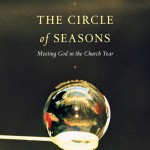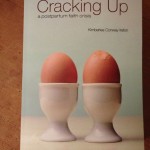Recently, after I gave Dorothy Sayers a Facebook handshake on Hug-an-Author Day because she’s too intimidating to hug, my friend Lynne wrote:
“I’d have to hug Dorothy Sayers (despite the fact that she intimidates me) because of Gaudy Night, one of my top ten books.”
My friend Sarah added, “I read Gaudy Night as a senior in high school… And, yes, it is one of my top ten books, too…I try to read it every year; it’s that good.”
This conversation got me thinking about my own top ten books: what do I read and reread? Why?
So while I was in Texas doing some wild reading with John Wilson, I made a list of the books I just couldn’t imagine living without. No list, of course, can capture the fullness of my literary life and loves, but this one’s a start.
The Bible. (Of course.) And if I was stranded on a desert island, I might become become bored enough to read the whole thing, even Leviticus. And Numbers, which has always defeated me.
The Book of Common Prayer. Or some other prayer book. I need others’ prayers to keep me praying. My own words are so paltry sometimes, so not enough. A good prayer book gives me other words, better words, words tested by time and trial and faith. I wouldn’t ever want to be without those words.
Pride and Prejudice by Jane Austen. My daughter and one son are named after this book, and I figure if I’m going to languish on a rocky beach somewhere in the middle of the ocean, I may as well bring Mr. Darcy with me.
Till We Have Faces by C.S. Lewis. Absolutely hands-down Lewis’s best book. Beautiful, multivalent, and provocative, this novel both haunts and entices me.
The Lord of the Rings by J.R.R. Tolkien. I confess I didn’t come to appreciate the depth, breadth, and complexity of Tolkien’s masterpiece until this year when I read it to my kids. This is a book that begs to be read aloud; its rhythms and images and allusions are even richer when heard.
Jane Eyre by Charlotte Bronte. I once heard that Mr. Rochester is the number one hunky hero of literature for gals in the U.K. I don’t get that myself. I always thought he was eccentric, and not in a good way. But I adore Jane—that girl has ovaries of steel and an iron will to match—and since she loves Mr. R, well, for her sake, I’ve learned to appreciate him (even though I think she deserves way better).
Middlemarch by George Eliot. Every desert island needs one big, fat, sprawling novel. This is mine. Eliot’s compassion, even for her villains, is deep and wide, authentic and convicting. The characters in this book are among the most noble, fallen, beautiful, and alive of any novel I’ve read. Plus, the prose is delicious:
That element of tragedy which lies in the very fact of frequency, has not yet wrought itself into the coarse emotion of mankind; and perhaps our frames could hardly bear much of it. If we had a keen vision and feeling of all ordinary human life, it would be like hearing the grass grow and the squirrel’s heart beat, and we should die of that roar which lies on the other side of silence. As it is, the quickest of us walk about well wadded with stupidity.”
Anne of Green Gables (and all the Anne books up through Anne’s House of Dreams) by L.M. Montgomery. I know I said this was a list for grown ups, but even though these are children’s novels, they’re among my favorite books ever. Perhaps I would grow weary of them on a desert island, I don’t know. I do know that I am giving Jane an illustrated copy of Anne of Green Gables for her birthday that I can hardly wait to read with her. I hope these will be on her desert island list someday, too.
Diary of an Old Soul by George MacDonald. A poem a day, each one wrestling with God or self with such transparency that I find myself wanting to highlight almost every word. This book, along with my Bible and prayer book, travels with me whenever I leave Seattle.
I’m saving spot number ten for Gaudy Night, which I haven’t read since college, but since it’s on the top ten list of two of my dear friends, I’m leaving room for it in my waterproof trunk. Just in case.
Enough about me. What are your top ten can’t-live-without-’em books?
Florilegium comes from two Latin words, meaning flower (flor) and gather (legere). Legere is closely related to the Latin word for reading (lectio). So a florilegium is literally a gathering of the flowers of reading: a collation of the best words, the best books.
I hope you’ll come by every Friday to gaze on some beautiful heart-mind-and-soul flowers. (And stop in at Susan’s, too, for another bouquet).





